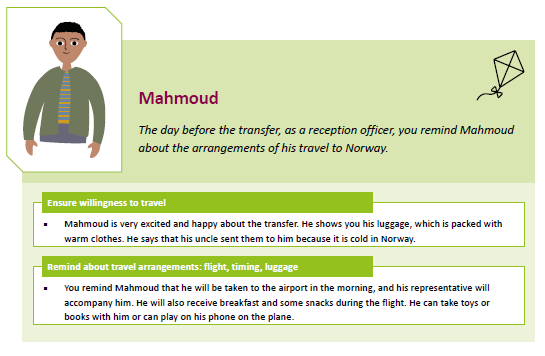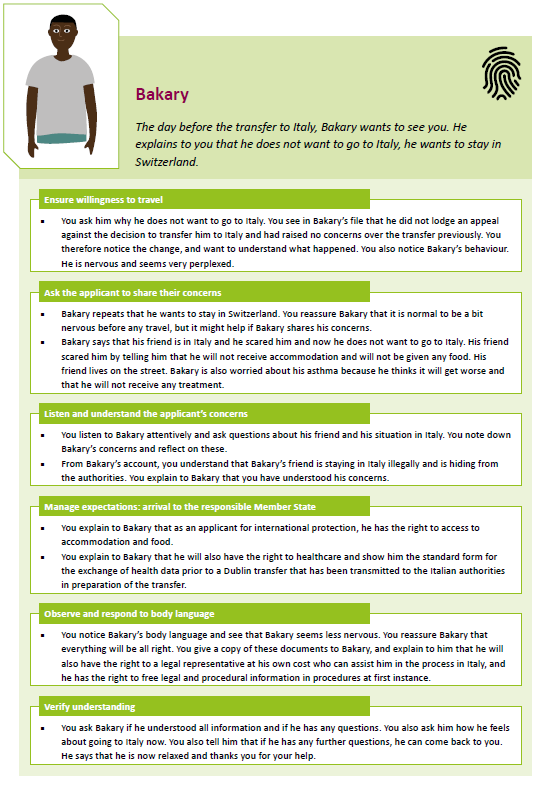The final step of the Dublin procedure is the transfer of an applicant to another Member State. This part covers the information provision during this final step of the procedure. The Dublin III regulation provides a standard time limit of 6 months from the acceptance of the take charge or take back request until the transfer should be executed. Under some circumstances this time limit can be even longer.
Depending on the circumstances of the case, a transfer to the responsible Member State might be seen with either anticipation or disappointment. Ensuring that applicants have sufficient information about the transfer will be crucial to ensure a successful transfer and effective access to the asylum procedure for the applicant in the responsible Member State.
Key information to provide when preparing a transfer
Provide as much practical information as possible.
When you are preparing the transfer itself, and the transfer decision has become enforceable, make sure to provide as many practical details as possible on the arrangements regarding the transfer. Consider providing the applicant with practical advice on what to pack in a carry-on bag for the transfer. Inform that the Member State will cover the cost of the transfer.
They are being transferred to a country bound by the same minimum standards for protection.
Especially if the applicant is reluctant or opposed to the transfer, remind them that they are being transferred to a country bound by the same minimum standards to provide protection. Inform the applicant about the consequences of absconding according with your national practice.
Good practice: continuity of care and health data of applicants
Information on any special needs of the person to be transferred, which could include information on their physical or mental health, should be communicated to the receiving Member State as long as the applicant provides their explicit consent.
Applicants may worry about whether the medical care that they are receiving in the Member State where they are present will continue also after a transfer. Informing applicants about the need for their consent to communicate medical data to the receiving Member State can offer an opportunity to also explain that this data will be exchanged precisely to ensure a continuity of their medical care. This can contribute to building trust and reducing anxiety amongst the applicants.
Good practice: information on what to pack
Providing some basic tips on what to pack and especially on what to bring in their carry-on bag that is available to the applicant during the trip can prove helpful for the applicant. This could concern medicines, clothes appropriate for the current weather at the destination and similar things.
Good practice: information on what to expect after the transfer
Informing the applicant on what to expect in the Member State that they will be transferred to can contribute to reducing stress and anxiety with the applicant and to build trust. This is especially true in rare cases of voluntary transfers where the applicant will not be met by the authorities of the receiving Member State but rather is expected to seek them out to gain access to the asylum procedure.
Character: Mahmoud

Character: Bakary
